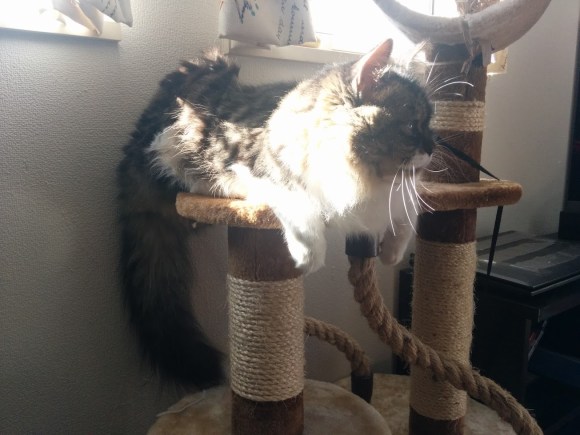
Japan’s ageing population is resulting in more and more pets being left to fend for themselves after their elderly owners pass away.
It is a well-known fact that Japan’s population is ageing, with the government trying to implement measures to deal with a so-called “silver society” wherein the number of people past retirement age outstrips the number of young people in the workforce. As well as the big, oft-discussed issues of pensions, healthcare and so on, there are a number other smaller, less obvious issues that are sure to impact Japan in other way. One such issue is that of pets, and the number of domestic animals being left behind when their elderly owners die is on the increase.
Unfortunately there are many sad cases where an elderly person passes away in solitude, without any friends or family to check on them. In these situations, the body may not be discovered for weeks, or even months, and after that there is still the problem of dealing with the deceased’s belongings and home, which is often left to specialist estate liquidation companies.
An employee of Guardian, one such liquidation company, explained that it is not unusual to find pets in the houses of the deceased. A recent example they recounted was when they entered a residence in Kanagawa where a man of around 60 years of age had passed away in his bed and had not been discovered for four months. Inside the house were six cats who had been surviving with just a little water in the bathtub. The animals were in a sorry state, emaciated and covered in blood from fighting.
These cats had probably been well-loved pets during their owner’s lifetime, but had no one to provide for them after the man’s death, and had to fend for themselves, squabbling over anything they could find to stay alive. In these situations the animals will often be passed on to animal control, where the fate that awaits them is usually euthanization.
According to the Ihin Seirisi Nintei Kyokai (Association of Estate Liquidators) in Hokkaido, around 20 to 30 percent of their requests related to elderly people who have died or gone into hospital alone concern pets. In the year 2012, the Tokyo Animal Welfare Center (animal control) took in 550 pets that had owners (i.e. not strays or feral). In 22 percent of cases it was because their owner had died, and in 18 percent the owner had been hospitalized, meaning that 40 percent of cases were related to owners, most of them elderly, having no one to care for their pets once they had became unable to. A representative for the organization said that the number of pets they were taking in due to their owners’ old age was likely to continue to increase. They are looking into publishing a pamphlet that encourages owners to think about the necessity of making arrangements for their pets in the case that they are no longer able to care for them.
Some people have pointed out that this is not necessarily a problem limited to the elderly, but more generally to people who live alone and have little contact with others. In the case of the 60-year-old man mentioned above, in today’s society this is still a very young age to die. The issue in this case was that his death was not discovered for four months, and so neither were his animals. People living alone may also be more likely to have multiple pets as company, further exacerbating the issue. On top of all that is the overall lack of concern about animal welfare in Japan which, although showing signs of improvement in recent years, still hampers efforts to educate and engage people when it comes to the plight of these creatures.
Owning a pet is a commitment for the rest of that pet’s life, so it is important for pet owners to make arrangements for what will happen to their animals in the case that they are unable to care for them any longer. The task of spreading awareness of this issue is currently being left to animal charities, but if the problem continues to escalate, as many seem to expect it to as Japan’s society continues to age, we could see it featuring more heavily in government informative campaigns in the future. This is a problem that touches on both issues of animal welfare and the treatment of the elderly, two very vulnerable groups within society, and we hope that with increased exposure of some of the sad cases companies and charities have encountered, steps will be made towards a solution.
Source: Jin115
Images © RocketNews24
The photos are of the author’s own adorable kitty cat, proudly adopted from Tokyo Cat Guardian. [Japanese]
For English-language resources on animal welfare in Japan, please check out the following organizations, which are doing some wonderful work here:
Animal Refuge Kansai, HEART Tokushima, Japan Cat Network

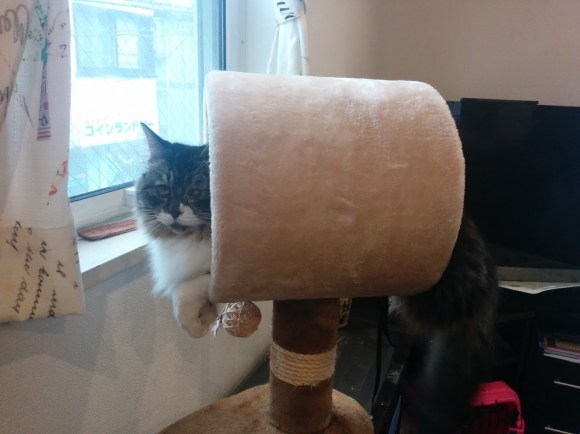
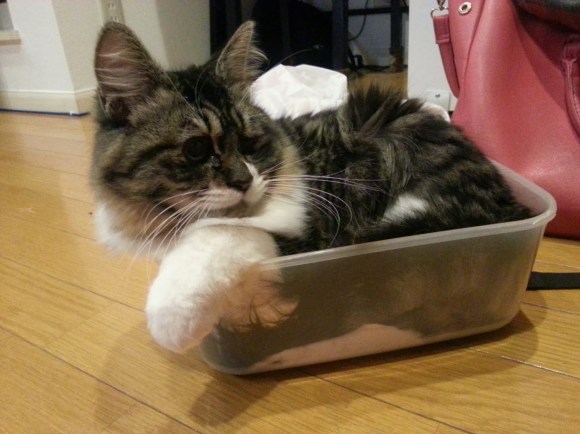
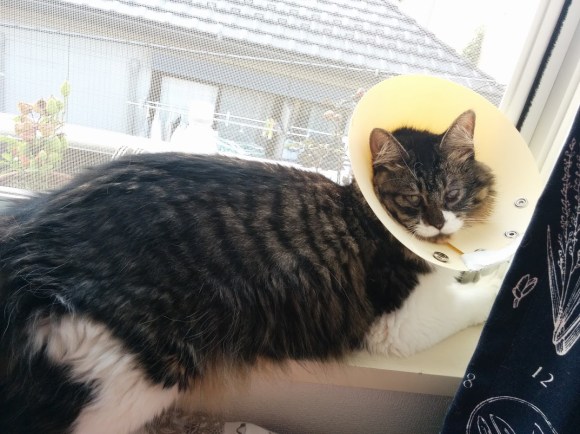
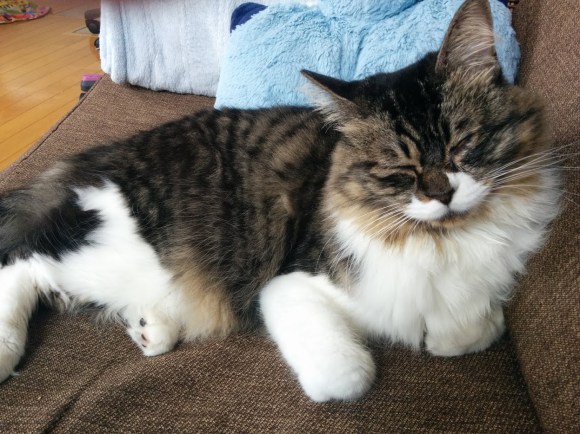
 A shocking discovery in Sapporo as 238 cats are found living under one roof in dismal conditions
A shocking discovery in Sapporo as 238 cats are found living under one roof in dismal conditions It’s not just people in Japan that are getting old, pets are living longer as well!
It’s not just people in Japan that are getting old, pets are living longer as well! Still a ways to go, but animal welfare in Japan is improving by leaps and bounds
Still a ways to go, but animal welfare in Japan is improving by leaps and bounds Kitty door placards from Japan don’t just look cute, they could save your pet’s life
Kitty door placards from Japan don’t just look cute, they could save your pet’s life Japan’s vaunted taxi service to be offered to dogs and cats with new Pet Taxis
Japan’s vaunted taxi service to be offered to dogs and cats with new Pet Taxis Kyoto raises hotel accommodation tax to fight overtourism, travelers could pay up to 10 times more
Kyoto raises hotel accommodation tax to fight overtourism, travelers could pay up to 10 times more Potama serves up epic rice balls like no other, and there’s only one store in Tokyo
Potama serves up epic rice balls like no other, and there’s only one store in Tokyo Anime industry takes in record 2.0 trillion yen in 2016
Anime industry takes in record 2.0 trillion yen in 2016 Lawson adds doughnuts to its convenience store sweets range, but are they good enough to go viral?
Lawson adds doughnuts to its convenience store sweets range, but are they good enough to go viral? Michelin Guide gyoza in Tokyo: Worthy of the accolade?
Michelin Guide gyoza in Tokyo: Worthy of the accolade? What makes this new Japanese convenience store chain better than 7-Eleven?
What makes this new Japanese convenience store chain better than 7-Eleven? Is Sapporio’s Snow Festival awesome enough to be worth visiting even if you hate the snow? [Pics]
Is Sapporio’s Snow Festival awesome enough to be worth visiting even if you hate the snow? [Pics] The results are in! One Piece World Top 100 characters chosen in global poll
The results are in! One Piece World Top 100 characters chosen in global poll Japan has a new bar just for people thinking about quitting their jobs, and the drinks are free
Japan has a new bar just for people thinking about quitting their jobs, and the drinks are free 7-Eleven Japan’s sakura sweets season is underway right now!
7-Eleven Japan’s sakura sweets season is underway right now! Starbucks Japan releases first-ever Hinamatsuri Girls’ Day Frappuccino
Starbucks Japan releases first-ever Hinamatsuri Girls’ Day Frappuccino Japanese restaurant chain serves Dragon Ball donuts and Senzu Beans this spring
Japanese restaurant chain serves Dragon Ball donuts and Senzu Beans this spring Highest Starbucks in Japan set to open this spring in the Tokyo sky
Highest Starbucks in Japan set to open this spring in the Tokyo sky Japan Extreme Budget Travel! A trip from Tokyo to Izumo for just 30,000 yen [Part 1]
Japan Extreme Budget Travel! A trip from Tokyo to Izumo for just 30,000 yen [Part 1] Japan has only one airport named after a samurai, so let’s check out Kochi Ryoma【Photos】
Japan has only one airport named after a samurai, so let’s check out Kochi Ryoma【Photos】 Japan Extreme Budget Travel! A trip from Tokyo to Izumo for just 30,000 yen [Part 2]
Japan Extreme Budget Travel! A trip from Tokyo to Izumo for just 30,000 yen [Part 2] Japan’s craziest burger chain takes menchi katsu to new extreme levels
Japan’s craziest burger chain takes menchi katsu to new extreme levels Japanese drugstore sells onigiri at pre-stupid era prices, but how do they compare to 7-Eleven?
Japanese drugstore sells onigiri at pre-stupid era prices, but how do they compare to 7-Eleven? Yakuzen ramen restaurant in Tokyo is very different to a yakuza ramen restaurant
Yakuzen ramen restaurant in Tokyo is very different to a yakuza ramen restaurant Tokyo Skytree turns pink for the cherry blossom season
Tokyo Skytree turns pink for the cherry blossom season Japan’s newest Shinkansen has no seats…or passengers [Video]
Japan’s newest Shinkansen has no seats…or passengers [Video] Starbucks Japan releases new sakura goods and drinkware for cherry blossom season 2026
Starbucks Japan releases new sakura goods and drinkware for cherry blossom season 2026 Foreigners accounting for over 80 percent of off-course skiers needing rescue in Japan’s Hokkaido
Foreigners accounting for over 80 percent of off-course skiers needing rescue in Japan’s Hokkaido Super-salty pizza sends six kids to the hospital in Japan, linguistics blamed
Super-salty pizza sends six kids to the hospital in Japan, linguistics blamed Starbucks Japan unveils new sakura Frappuccino for cherry blossom season 2026
Starbucks Japan unveils new sakura Frappuccino for cherry blossom season 2026 Foreign tourists in Japan will get free Shinkansen tickets to promote regional tourism
Foreign tourists in Japan will get free Shinkansen tickets to promote regional tourism The 10 most annoying things foreign tourists do on Japanese trains, according to locals
The 10 most annoying things foreign tourists do on Japanese trains, according to locals Take a trip to Japan’s Dododo Land, the most irritating place on Earth
Take a trip to Japan’s Dododo Land, the most irritating place on Earth Naruto and Converse team up for new line of shinobi sneakers[Photos]
Naruto and Converse team up for new line of shinobi sneakers[Photos] Is China’s don’t-go-to-Japan warning affecting the lines at a popular Tokyo gyukatsu restaurant?
Is China’s don’t-go-to-Japan warning affecting the lines at a popular Tokyo gyukatsu restaurant? Survey asks foreign tourists what bothered them in Japan, more than half gave same answer
Survey asks foreign tourists what bothered them in Japan, more than half gave same answer Japan’s human washing machines will go on sale to general public, demos to be held in Tokyo
Japan’s human washing machines will go on sale to general public, demos to be held in Tokyo Starbucks Japan releases new drinkware and goods for Valentine’s Day
Starbucks Japan releases new drinkware and goods for Valentine’s Day We deeply regret going into this tunnel on our walk in the mountains of Japan
We deeply regret going into this tunnel on our walk in the mountains of Japan Studio Ghibli releases Kodama forest spirits from Princess Mononoke to light up your home
Studio Ghibli releases Kodama forest spirits from Princess Mononoke to light up your home Major Japanese hotel chain says reservations via overseas booking sites may not be valid
Major Japanese hotel chain says reservations via overseas booking sites may not be valid Put sesame oil in your coffee? Japanese maker says it’s the best way to start your day【Taste test】
Put sesame oil in your coffee? Japanese maker says it’s the best way to start your day【Taste test】 No more using real katana for tourism activities, Japan’s National Police Agency says
No more using real katana for tourism activities, Japan’s National Police Agency says Tokyo-based pet insurance company to offer paid leave for pet-parent employees
Tokyo-based pet insurance company to offer paid leave for pet-parent employees New wearable device reads your pet’s mind (to remind you they’re probably annoyed at you)
New wearable device reads your pet’s mind (to remind you they’re probably annoyed at you) New unlimited cat subscription service in Japan blasted online
New unlimited cat subscription service in Japan blasted online Owner wins damages after Chihuahua dies following encounter with German Shepherd in the street
Owner wins damages after Chihuahua dies following encounter with German Shepherd in the street Cat Cafe Mocha in Tokyo shuts down after cats die from feline parvovirus outbreak
Cat Cafe Mocha in Tokyo shuts down after cats die from feline parvovirus outbreak Pets get mouse ear makeovers thanks to trending app in Japan
Pets get mouse ear makeovers thanks to trending app in Japan Japan’s cat cafes expected to get permanent permission to operate past 8 p.m.
Japan’s cat cafes expected to get permanent permission to operate past 8 p.m. Tokyo government orders cat cafe to shut down for violating animal welfare regulations
Tokyo government orders cat cafe to shut down for violating animal welfare regulations Kitties, doggies, bunnies, and deer – even more stuff balanced on Japan’s pets!
Kitties, doggies, bunnies, and deer – even more stuff balanced on Japan’s pets! This handy “Cat Help Memo Book” is great for providing for your pets in a worst-case scenario
This handy “Cat Help Memo Book” is great for providing for your pets in a worst-case scenario Sukiyaki, soba, oden, and other Japanese comfort foods…for your pet cat or dog?!?
Sukiyaki, soba, oden, and other Japanese comfort foods…for your pet cat or dog?!? Cat and dog owner in Japan wanders in on pets holding creepy cute ritual【Video】
Cat and dog owner in Japan wanders in on pets holding creepy cute ritual【Video】 Man cautioned for keeping endangered leopard cat at home for 15 years, then asked for his advice
Man cautioned for keeping endangered leopard cat at home for 15 years, then asked for his advice Spoil your pet rotten with this comfy bed and blanket that looks fit for a king!
Spoil your pet rotten with this comfy bed and blanket that looks fit for a king! Japan has a cat real estate agency, where every apartment lets you and your kitty live together!
Japan has a cat real estate agency, where every apartment lets you and your kitty live together!